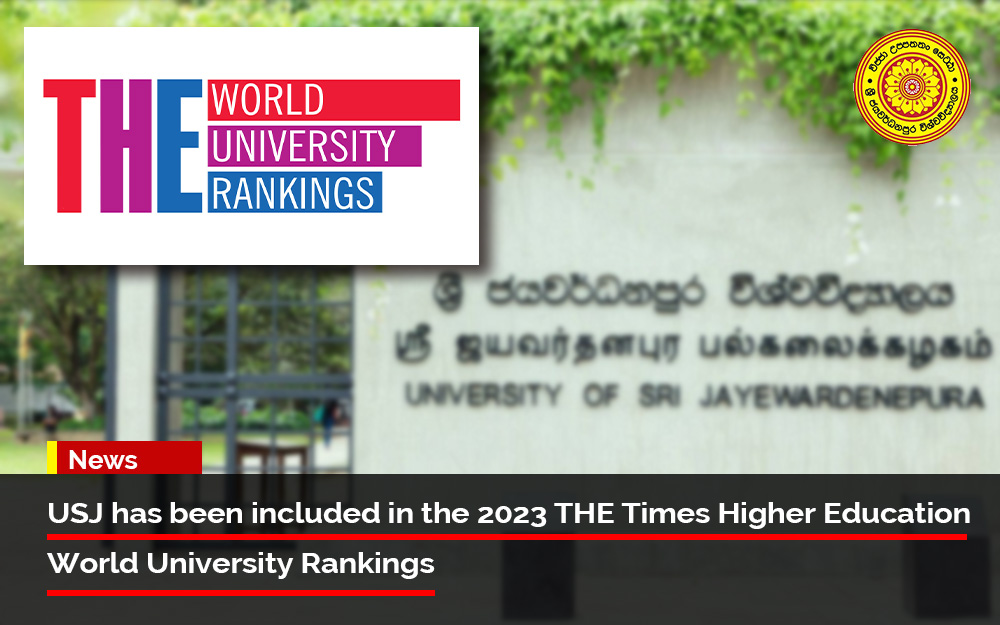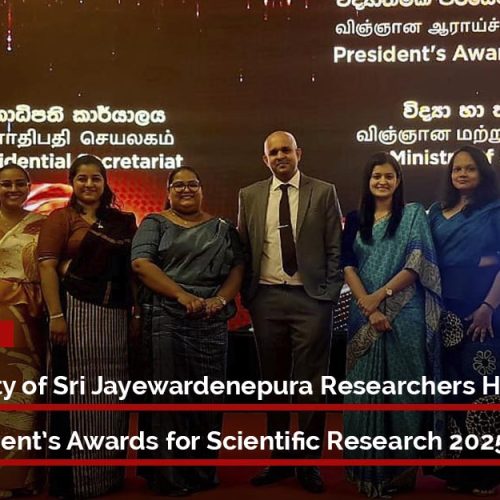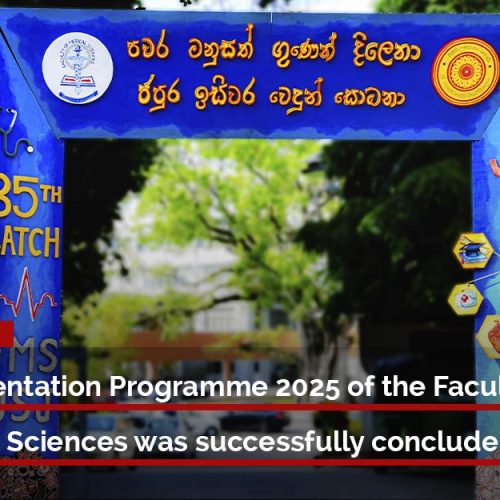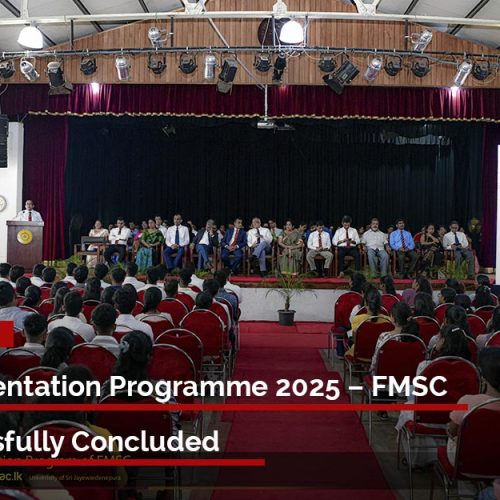University of Sri Jayewardenepura has been included in the 2023 THE Times Higher Education World University Rankings with the “Reporter” status. This 2023 ranking was released today (12 October 2022). This new status recognizes the University of Sri Jayewardenepura that has submitted data for this important global exercise and meets the eligibility criteria for year 2023 onwards. USJ is one of the best of six universities of Sri Lanka listed in The Higher Education ranking, out of 17 universities and 25-degree awarding institutions established in Sri Lanka.
The Times Higher Education (THE) World University Rankings are the only global performance tables that judge research-intensive universities across all their core missions: teaching, research, knowledge transfer and international outlook. They use 13 calibrated performance indicators to provide the most comprehensive and balanced comparisons, trusted by students, academics, university leaders, industry and governments. They categorize performance indicators into five areas: Teaching (the learning environment); Research (volume, income and reputation); Citations (research influence); International outlook (staff, students and research); and Industry income (knowledge transfer). As per THE Ranking Methodology, Institutions provide and sign off their institutional data for use in the rankings. On rare occasions THE enters a conservative estimate for the affected metric. By doing this, THE avoids penalizing an institution too harshly with a “zero” value for data that it overlooks or does not provide, and does not reward it for withholding them. Moving from a series of specific data points to indicators, and finally to a total score for an institution, and matching values that represent fundamentally different data. THE uses a standardization approach based on the distribution of data within a particular indicator, where we calculate a cumulative probability function, and evaluate where a particular institution’s indicator sits within that function for each indicator, and then combine the indicators in the proportions we detail above. For all indicators except for the Academic Reputation Survey, THE calculates the cumulative probability function using a version of Z-scoring. The distribution of the data in the Academic Reputation Survey requires adding an exponential component.
USJ was established in 1873, and home for about 13,000 current students who are studying in eight faculties: humanities and social sciences, applied sciences, management studies and commerce, medical sciences, graduate studies, engineering, technology, and allied health sciences. USJ has a research council of over 20 research centres including the Centre for Cancer Research, the Centre for Forestry and Environment and the Centre for Biotechnology. The university also has an Invention, Innovation and Venture Creation Council, which consists of over 50 entrepreneurs and stakeholders with more than 15 patents.












